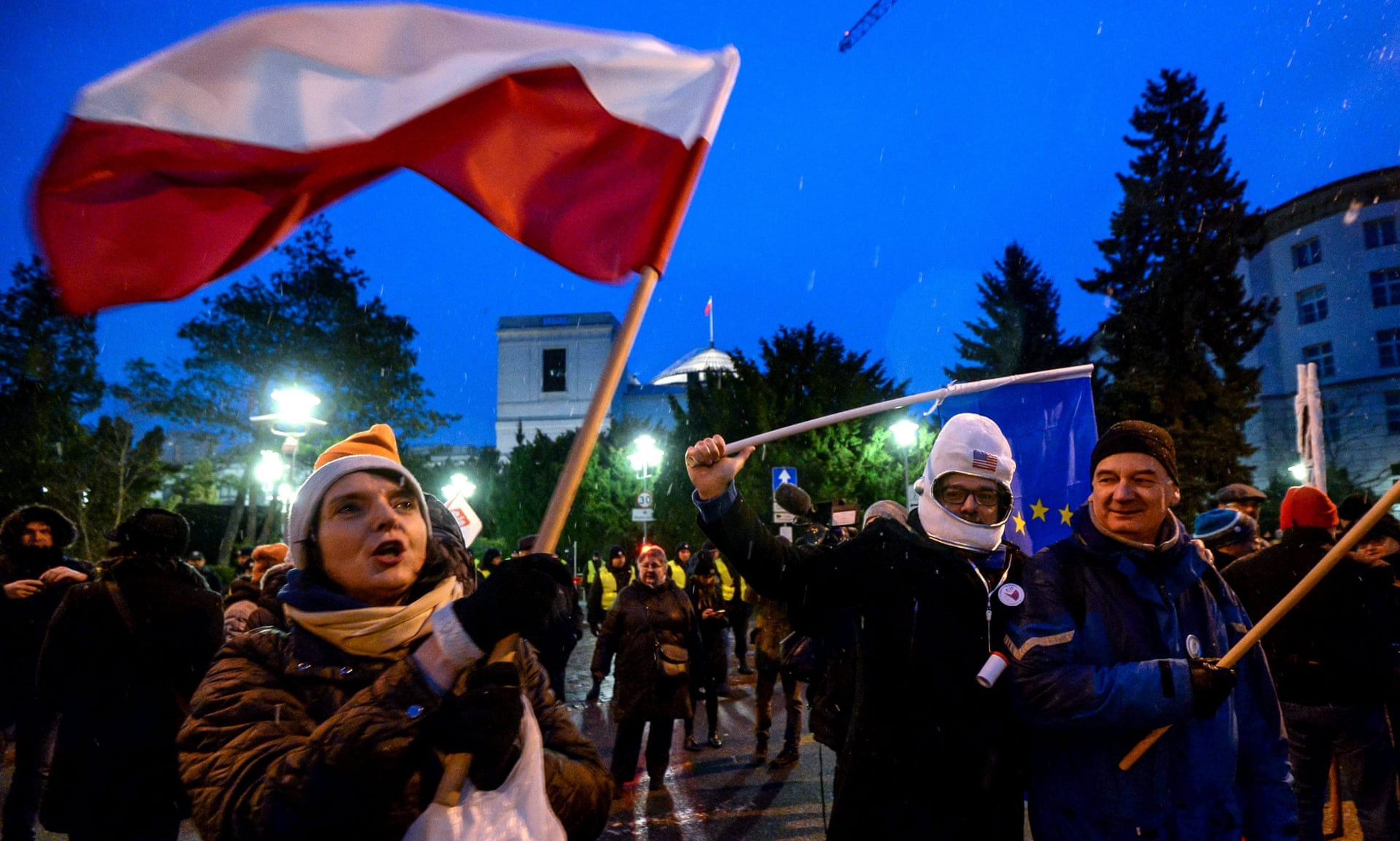Whenever you hear or read the word 'protest', what does come to your mind? Violence, Shouting people, traffic jams, Police doing lathi charge, right?. In the case of silent protest, violence is not present but citizens still face problems like traffic jams. Plus, it doesn't receive attention because it doesn't qualify to be 'sensational'[1]. What if I tell you that there is an example in history where people protested without hitting streets or using the Internet and won? In 1981, Polish people displayed the strength of unity and participated in a protest without hitting roads or doing any violence and won against mighty, oppressive government.
At the midnight of 12th December of 1981, Polish state brought the Martial law into immediate effect. This was in the response to opposition from writers, artists, journalists, worker unions who were demanding freedom of expression under the totalitarian government. The opposition was growing mainly from the 60s but it reached its peak in 1981. At the stroke of midnight, all newspapers, writers spreading 'false information' were put behind the bars and their properties were seized. In response to this, independent underground movement (called Solidarnosc) started which was made successful with support and participation from people. For example, the military started checking every big bag under the suspicion of carrying newspapers. Solidarnosc asked every stroller to carry a bag to protest against this. People supported this. Now, the military had to check every bag and this used to drive them crazy!
During Martial law, the TV news anchors were also appointed by the government. There used to be only one channel allowed and that too was completely under government 'censorship'. The public was very well aware of hijacked TV and intentions of government - to spread propaganda. They protested against this by turning off the TV. Some refused to pay TV license fee also. To underscore the fact that nobody was watching propaganda, people turned up the TV volume, faced it towards the window and went out for evening walks. The message from the public was strong - 'we are not going to get affected by false propaganda'. The authorities retaliated this by cutting off electricity and water. They also imposed restrictions on evening walks. Opposing this, people protested even strongly by participating more in evening strolls!
Like TV, newspapers were also controlled by the government. The public was completely cut off from international news media and forced to buy propaganda material by banning other independent media. A new movement called 'let the piles of unsold newspapers show our opposition to military rule' started. It got huge support. 80% of the newspaper stocks remained unsold! During the same period, Solidarnosc used to publish updates of movement through pamphlets. They were very popular among people. They helped people to get international news and more important, united them against the imposed martial law. The government tried to break Solidarnosc by publishing similarly looking leaflets, spreading rumors about fall of Solidarnosc. People did not fall prey to this and continued to oppose the martial law.
The protest by artists was the most noteworthy one. They refused to appear on any TV programs or act in any films directed by government-backed directors. Instead, they organized their own plays and asked the public to support them by buying tickets. The public supported them and in many cases, provided financial assistance. On the other hand, there were some writers, artists who compromised their values by joining pro-government groups. People did not spare them. Such writers woke up to find piles of their novels at the doorstep with angry messages from the public. It was called 'paper recycling' movement.
As a result of such kind of silent, the non-co-operative response from the public, on 22nd July 1983 i.e. around two and half years later, martial law was lifted and public won! This period is very important in Polish history. To the world, it demonstrated how society can fight against strong powers. Since then, people in Poland are very aware and sensitive about freedom of information. Recently, Polish government restricted access to parliament by only inviting limited media houses. It received so huge flak from the public that it forced government to go back foot.[2]
 |
References:
[1] Chapter 3 : Mass Communication, Propaganda and Persuation, 'The Social Animal' by Elliot Aronson
This article is based on the paper published by Fedorowicz, Hania M. titled "The War for Information: The Polish Response to Martial Law." published in Canadian Journal of Communication (1988).